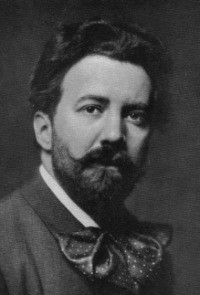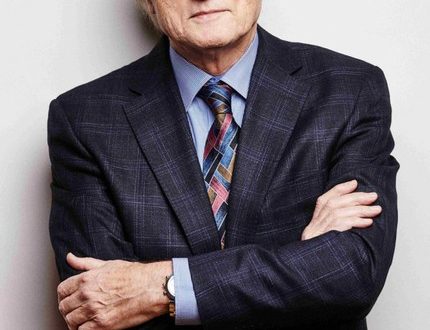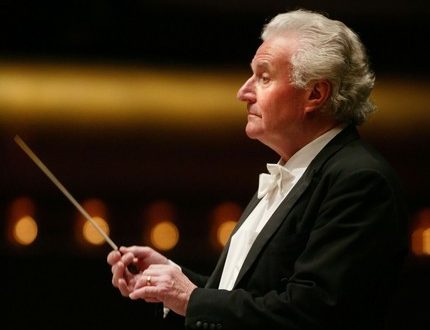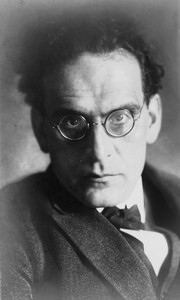
Henry Wood |
Henry Wood

One of the main musical attractions of the English capital is the Promenade Concerts. Every year, thousands of ordinary people – workers, employees, students – visit them, buying inexpensive tickets and listening to music performed by the best artists. The audience of the concerts is deeply grateful to the man who was the founder and soul of this undertaking, the conductor Henry Wood.
Wood’s entire creative life is closely connected with educational activities. He devoted himself to her at a young age. After graduating from the Royal Academy of Music in London in 1888, Wood worked with various opera and symphony orchestras, increasingly imbued with the desire to bring good music to those people who could not buy expensive tickets for concerts and performances. Driven by this noble idea, Wood organized in the mid-1890s his soon-to-be-famous “Promenade Concerts”. This name was not accidental – it literally meant: “concerts-walks.” The fact is that for them the entire stalls of the Queens Hall hall, where they first took place, were freed from chairs, and the audience could listen to music without taking off their coats, standing, and even walking if they wished. However, in reality, of course, no one was walking during the performance at the “Promenade Concerts” and an atmosphere of real art immediately reigned. Every year they began to gather an ever larger audience and later “moved” to the huge Albert Hall, where they still work today.
Henry Wood led the Promenade Concerts until his death – exactly half a century. During this time, he introduced Londoners to a huge number of works. Music of different nations was widely represented in the programs, including, of course, English. In fact, there is no such area of symphonic literature that the conductor has not addressed. And Russian music occupied a central place in his concerts. Already in the first season – 1894/95 – Wood began to promote the work of Tchaikovsky, and then the repertoire of the “Promenade Concerts” was enriched with many compositions by Glinka, Dargomyzhsky, Mussorgsky, Glazunov, Rimsky-Korsakov, Cui, Arensky, Serov. After the Great October Revolution, Wood performed annually all the new compositions of Myaskovsky, Prokofiev, Shostakovich, Kabalevsky, Khachaturian, Gliere and other Soviet authors. Especially a lot of Russian and Soviet music sounded in the “Promenade Concerts” during the Second World War. Wood repeatedly expressed his sympathy for the Soviet people, advocated friendship between the USSR and England in the struggle against a common enemy.
Henry Wood was by no means limited to directing the Proms Concerts. Even at the beginning of our century, he led other cycles of public concerts, which were visited by Vladimir Ilyich Lenin, who was then living in England. “We recently attended a good concert for the first time this winter and were very pleased, especially with Tchaikovsky’s last symphony,” he wrote in a letter to his mother in the winter of 1903.
Wood constantly conducted not only concerts, but also opera performances (among which was the English premiere of “Eugene Onegin”), toured in most countries of Europe and America, performed with the best soloists in the world. Since 1923, the venerable artist taught conducting at the Royal Academy of Music. In addition, Wood is the author of many musical works and books about music; he signed the latter with a Russian-sounding pseudonym “P. Klenovsky. To imagine the breadth of the artist’s horizons and, at least in part, the strength of his talent, it is enough to listen to Wood’s surviving recordings. We will hear, for example, excellent performances of Mozart’s Don Giovanni overture, Dvorak’s Slavic Dances, Mendelssohn’s miniatures, Bach’s Brandenburg Concertos and a whole host of other compositions.
“Contemporary Conductors”, M. 1969.





